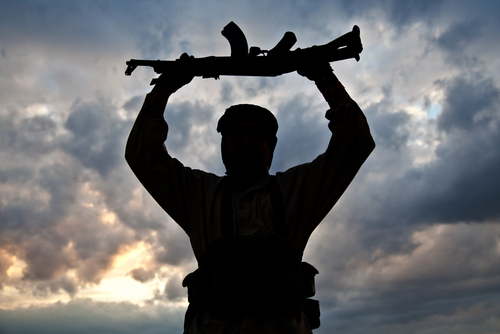“Part of the reason [IS] is rising in Libya is because Islamists have been able to control nodes of the Libyan state for the past four years by having key positions in the Defense Ministry, the Interior Ministry, the Central Bank, the Auditor General, the intelligence service,” he said. “They’ve been able to further their interests and to use Libyan funds.”
Tripoli officials have taken a similar stand, placing the blame for the attack on Gen. Khalifa Hifter, the military commander of the eastern forces trying to dislodge Libyan Dawn.
“We have seen initial reports on Facebook and social media from some sites that they are saying they are from [IS] and are claiming the attack. Following up with our own intelligence services, we have seen that these social media are not authentic sources,” Hassi told the Bloomberg news service. “We do believe this action was taken by the Hifter government with the possible aid of Egyptian intelligence, in an operation to try to show that there is instability in the capital, where we have provided stability for the residents, and to give the impression that terrorist organizations are able to operate in Tripoli.”
Such accusations of political shenanigans are rife in Libya, and Nayed himself has been accused of using his diplomatic office to get the UAE to arrest several Libyan political rivals. He says the stories were planted by Muslim Brotherhood operatives that he’s been battling since working with the National Transitional Council during the uprising against Gadhafi in 2011, and points out that he's even helped get the UAE to release three of the arrested Libyans.
“I have no illusions: I am under attack by the Muslim Brotherhood,” he said. “But at the same time I am neither afraid of that attack, nor does it dissuade me from supporting Libyan citizens even if they belong to the Muslim Brotherhood. I still deliver their consular rights, and I dare anyone or challenge anyone to prove otherwise.”
(Terrorism image via Shutterstock)





